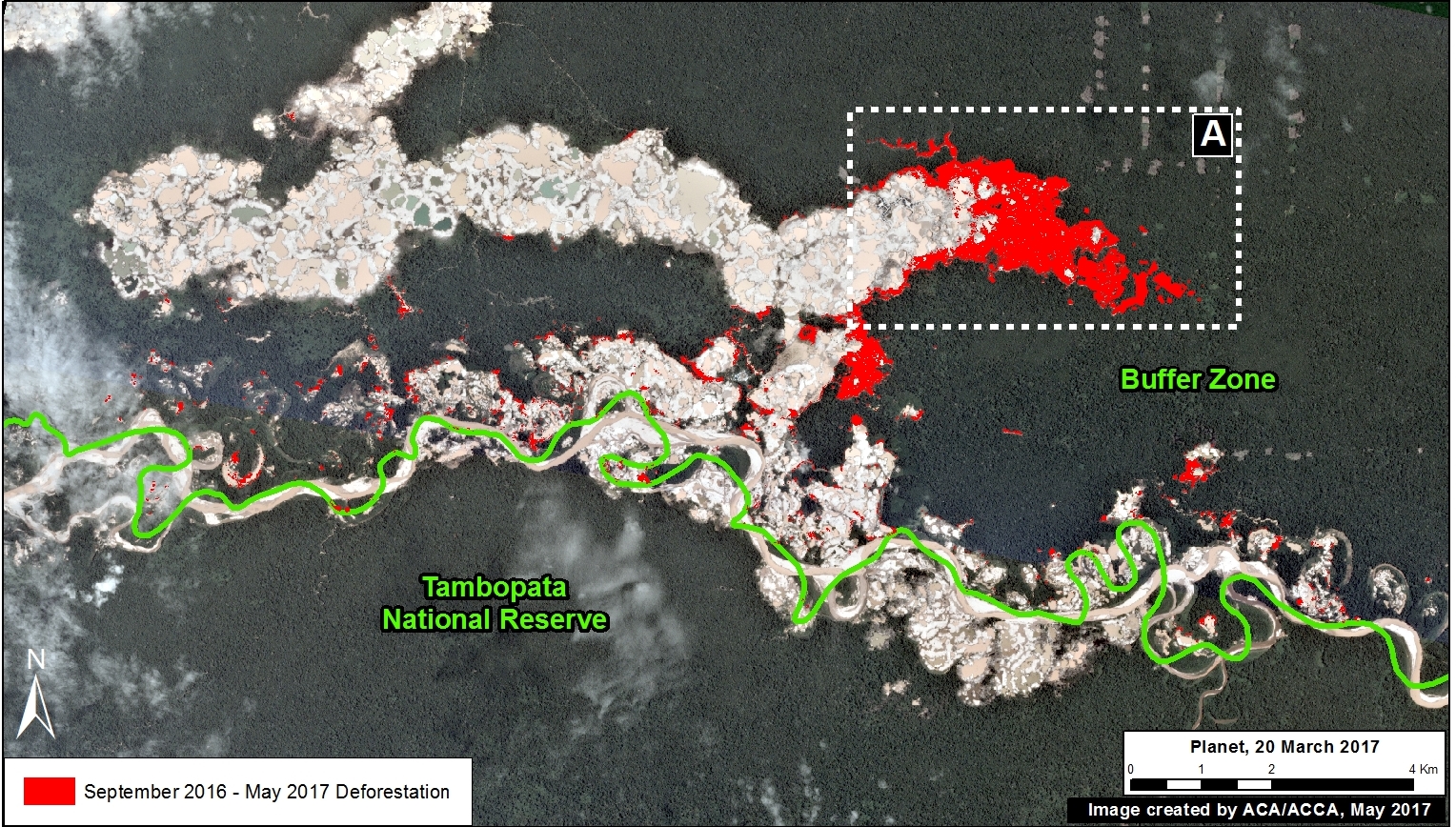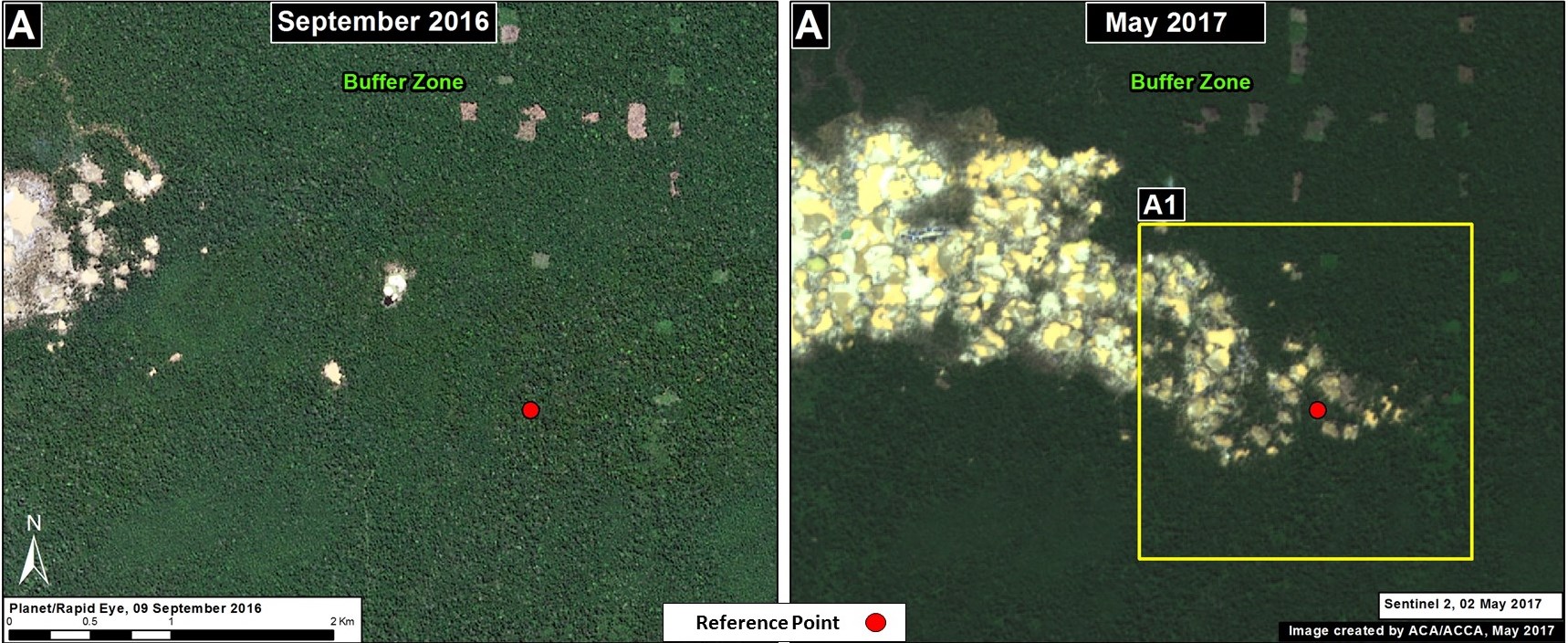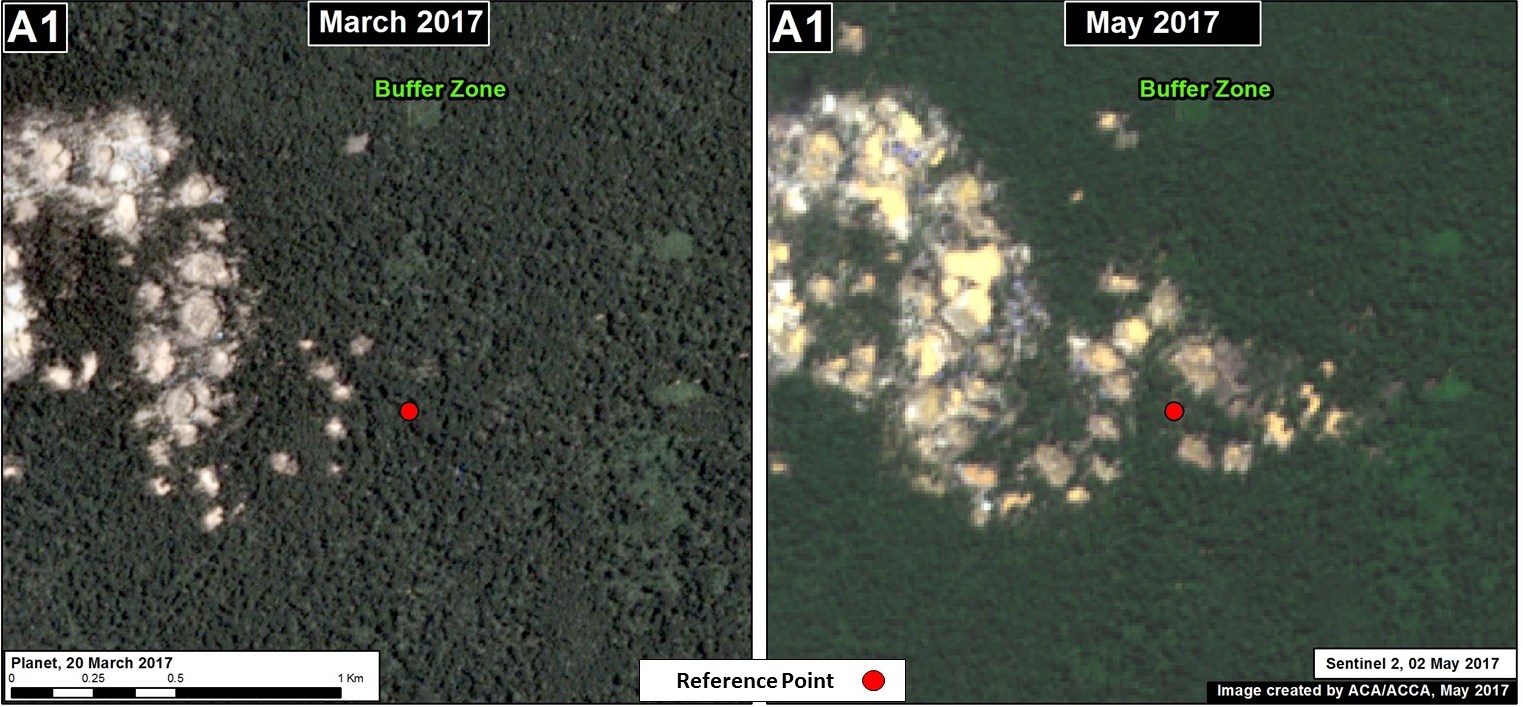
MAAP #60: Gold Mining Increases in Buffer Zone of Tambopata National Reserve
May 24, 2017
In the previous MAAP #50, we presented an analysis of the extent of gold mining deforestation in the southern Peruvian Amazon as of September 2016. Here, we partially update the data for the area within the buffer zone of Tambopata National Reserve.* We document the increase of 1,135 acres (460 hectares) of illegal mining deforestation during the last 8 months, from September 2016 to May 2017 (see red in Image 60). That brings the total deforested area in the buffer zone to 10,970 acres (4,440 hectares) since 2012.
*The buffer zone does not form part of the respective protected area, thus it is not under the jurisdiction of the Peruvian national protected areas agency, SERNANP. However, the illegal activities that are being carried out in the buffer zone are putting the conservation values of the protected area at risk, and are under the jurisdiction of other entities in the Peruvian government.
High-Resolution Zooms
Image 60a shows the buffer zone’s most active deforestation front between September 2016 (left panel) and May 2017 (right panel). Inset A1 highlights the most recent deforestation, showing the advance just between March (left panel) and May (right panel) 2017. The red points (•) indicate the same place on both panels.
Movement of Illegal Mining Camps
Image 60b is a GIF that shows the continual movement of illegal mining camps towards the active deforestation front, between November 2015 and March 2017. Note that previous camps are abandoned after the relocation.
Legal Implications
Recently, a bill has been presented in the Peruvian Congress that proposes that illegal mining should not be classified as an organized crime. However, as evidenced in this report, the illegal gold mining camps operate in a highly organized manner.
Citation
Finer M, Olexy T, Novoa S (2017) Gold Mining Increases in the Buffer Zone of Tambopata National Reserve. MAAP: 60.
























